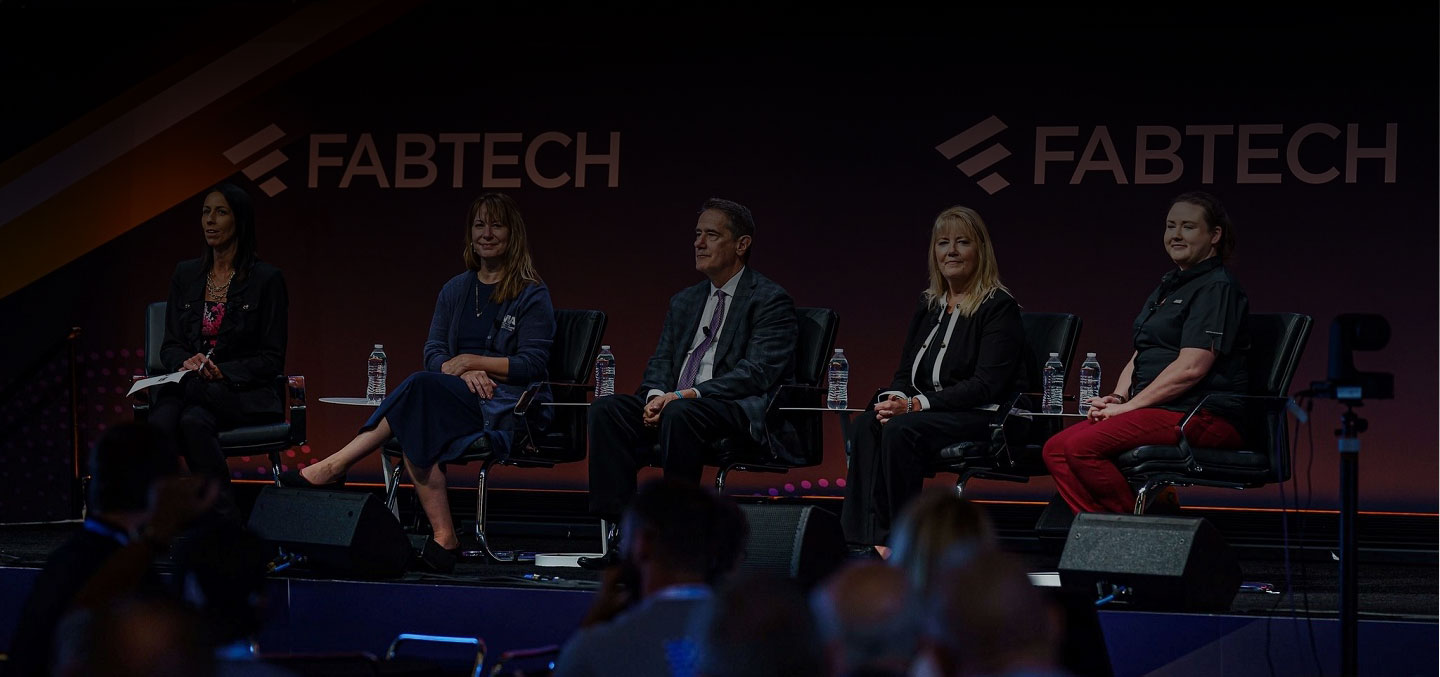Be a Blog Subscriber
Join thousands of manufacturing leaders and professionals who get the Accelerate blog delivered straight to their inbox

I’m still encouraged by the optimistic energy at FABTECH last week. Nearly 40,000 people gathered for North America’s largest metal forming, fabricating, welding and finishing event. One topic that took center stage was workforce development.
There is no question that the manufacturing industry continues to face a workforce development crisis. To remain competitive, companies must transform their workforce to adapt to quickly changing technological advancements. To stay up to date, you may have attended sessions on fabricating, welding, robotics, automation and more at FABTECH.
This means a renewed focus on recruiting, retaining and developing teams. Without that focus, manufacturers will struggle to innovate and grow.
You may say that doesn’t sound optimistic. Yet, here’s why I am encouraged.
At the event, I was part of three SME sessions that showcased the innovation and advancement of the industry.
First, I had the privilege of moderating a panel, “Leadership Exchange: Building the Future Workforce,” with industry powerhouses:
We talked about how transforming your workforce is necessary in ensuring that advanced manufacturing and innovation supports technological competitiveness and drives product and process improvements.
This requires a highly skilled workforce. How do we do that when the manufacturing industry faces challenges not only from skills gaps but also a shrinking workforce?
This amazing panel of experts shared some key takeaways industry leaders can develop to secure future opportunities such as:
I was also part of a session called, “Reality Check: It’s a Lack of Workforce Readiness that is Holding Manufacturing Back, Building a Talent Plan for the Future,” with Marion Wells, a Predictive Index certified talent specialist and founder of Human Asset Management. We also get to tap into Marion’s brilliance as a member of the SME Education Foundation board of directors.
Marion and I discussed something I have been talking about for years. It is essential to have a plan when it comes to addressing talent needs for today and for the future. We shared insights on the state of the manufacturing workforce and how it may affect companies. We also provided actionable steps of a workforce strategy to utilize in developing your talent strategy. We fielded lots of great questions and it’s exciting to see how many of you are creating and implementing workforce plans.
Finally, I was thrilled to join our SME team to announce our new Manufacturing Imperative— Workforce Pipeline Challenge (MI-WPC).
SME, along with many other industry organizations, understands that manufacturing is a critical engine of America’s economic strength and national security, playing a role in almost every sector of our economy. It is our responsibility to support the development of a diverse and qualified talent pool by stepping up our efforts and investments to strengthen the manufacturing supply chain with technically skilled individuals. Only then can we ensure our industrial base remains resilient now and into the future.
To address this, SME is partnering with 25 innovative community and technical colleges to drive this national approach to talent pipeline development by implementing innovative solutions which address long-standing industry challenges. Together we will build awareness of careers in manufacturing, optimize workforce systems, and accelerate the education and skill development needed to place individuals in jobs making family-sustaining wages.
Just a few of the institutions participating in the challenge include Wallace State and Calhoun Community Colleges (AL), Daley College from the City Colleges of Chicago and College of Lake County (IL), WSU Tech (KS), Grand Rapids and Schoolcraft Community Colleges (MI), Wake Tech Community College (NC), Columbus State and Lorain Community Colleges (OH), Tulsa Community College (OK), Greenville Technical College (SC), Pellissippi State Community College (TN), Lone Star Community College and Dallas College (TX) and Patrick & Henry Community College (VA).
Each school is committed to creating bold and innovative solutions and will have a goal of enrolling 1,000 individuals per year, with pathways that lead to jobs in manufacturing. SME looks forward to expanding this initiative beyond these initial 25 pilot institutions.
Collaboration has never been more important. What we saw —and experienced at FABTECH —reinforces that the industry has some great momentum as we come together to build prosperity for individuals, companies and the nation.Join thousands of manufacturing leaders and professionals who get the Accelerate blog delivered straight to their inbox